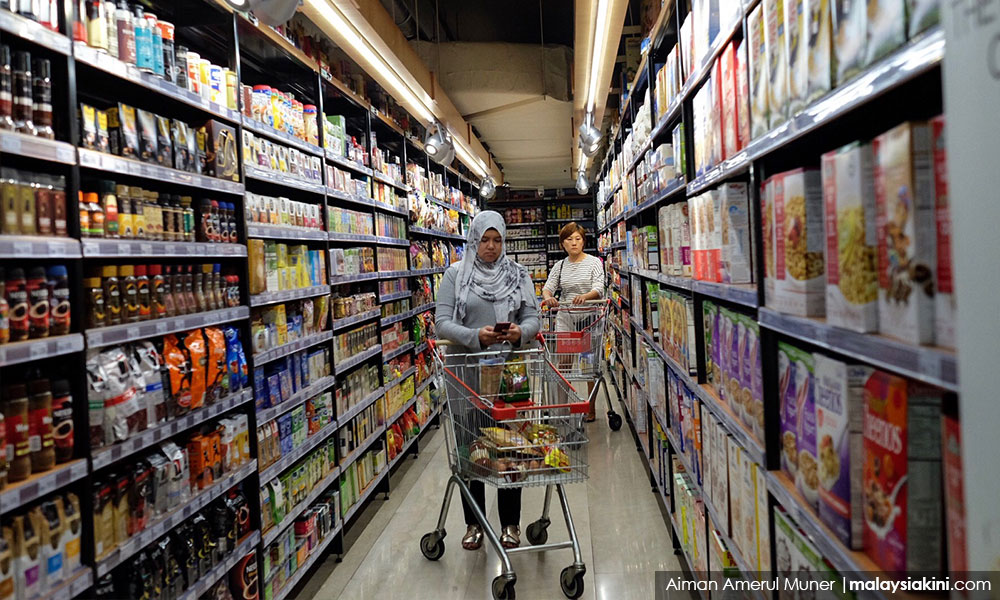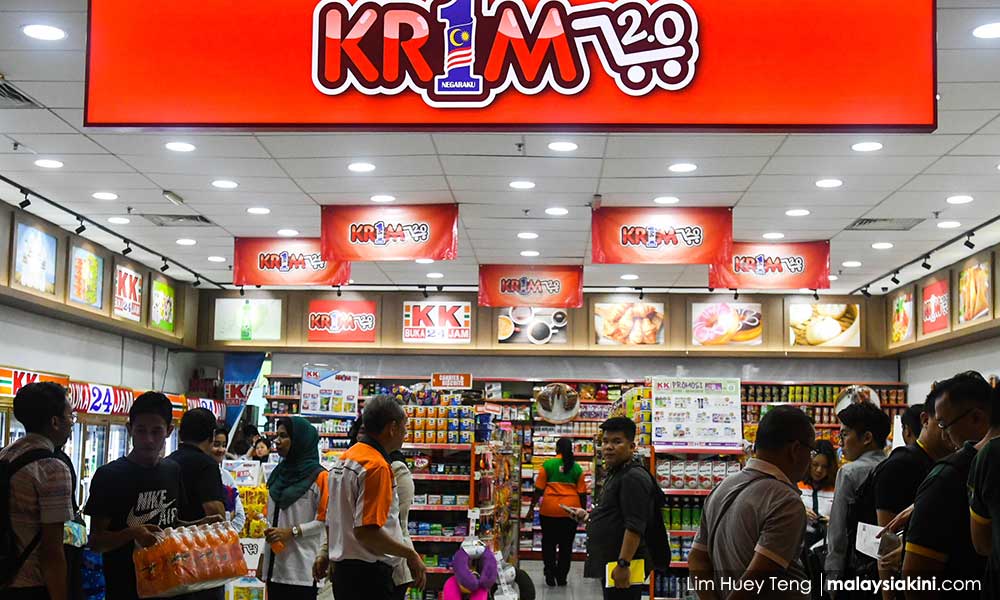
PKR secretary-general Saifuddin Nasution has found himself having landed on a 'hot seat' after being appointed as the minister of domestic trade and consumerism.
"I can feel that this is indeed a hot seat," he said, with a grin, in an interview with Malaysiakini last Friday.
This is because the rising cost of living, which failed to be handled by the previous administration of the BN, and caused its downfall, now has partly fallen on his shoulders.
The ministry, which is entrusted to protect consumers, has been actively monitoring goods prices and taking action against errant traders found breaking the laws and regulations before the May 9 general election.
Saifuddin admitted that it would be intolerable for him to see the opposition reclaim Putrajaya in the 15th general election by harping on the cost of living issue.
"The biggest challenge for Pakatan Harapan is to come out with a workable policy that can increase the wages of the people and followed by policies that can reduce the cost of living from all aspects," he said.
"Let me tell you this, the cost of living comprises the cost of housing, education, healthcare, utility bills and food. The goods and services tax (GST) and goods were just part of it," he said.
"I am very much committed (to reduce the cost of living)," he said in a firm tone.

In his first week as minister, Saifuddin went through sets of documents, statistics and received intensive briefings from his senior officials as he scratched his head for solutions to bring down the goods prices, as pledged by Harapan in its election manifesto.
Last week, his ministry released a report that showed the zero-rated GST imposed from June 1 had seen 72 percent of the necessities required by consumers drop in prices of between one percent and about 13 percent, that same month.
Not the end of the fairy tale
However, this is not the end of the 'fairy tale'. Saifuddin and the ministry need to be ready for the implementation of the sales and services tax (SST) which will replace the GST.
The coming parliamentary sitting commences on July 16 will see GST being tabled for abolition. And, it has been reported that the SST will be implemented from Sept 1, at a 10 percent rate.
It shows there is a three months transition period, where rakyat will literally be "tax-free" on the purchase of their daily necessities.
Saifuddin is also preparing for the possibility of price hikes after the implementation of the SST, a tax that had been in force from the 1970s until 2014. The GST came into force on April 1, 2015.
"It is simple, if you impose a tax on goods, the consumers will be affected. SST will not be directly imposed on the consumer," said Saifuddin, who is the MP for Kulim Bandar Bahru from PKR.

He said the ministry can only ascertain the real impact of SST after he receives an empirical report.
According to Saifuddin, the government has yet to decide on the timing to table SST Bill in Parliament.
For the time being, he is following up on a report that shows food prices at eateries are not causing the reduction of the food prices in the ecosystem.
"I am looking at the prices of controlled items to look for the possibility of reducing the prices further. But, I have yet to make a decision," he said.
At least two controlled items out of 22 are being studied, he said without naming the controlled items.
"I want to know to whom the ministry has given the licences to import, manufacture, distribute and wholesale these items," he said.
Saifuddin said he did not want to be the kind of minister who would announce the prices of goods on weekly basis, but he would rather dig into the consumer ecosystem to look for ways to reduce the goods prices.
"There will be good news to be announced. But, I am not a populist," he said.
He believes that enforcement alone cannot be the answer to ensure lower goods prices. Education should also be the way to do it.
"Enforcement should be the last resort as we, human beings, dislike to be controlled. It is ethical for the traders to reduce prices if they know that the government is implementing policies that will reduce the burden of the people," he added.

Saifuddin also said his ministry was reviewing the Kedai Rakyat 1Malaysia (KR1M 2.0) project and would determine whether the project should be continued - with a rebranding if necessary.
"There are 52 shops operating under KR1M 2.0 and though still operating, most of the operators have taken down the KR1M signboards," he said.
"I will decide on this in the near future, after I get a full report," he added.
It was reported that the previous BN administration targeted the setting up of 3,000 KR1M outlets this year. These shops basically focus on four essential items: rice, sugar, cooking oil and flour, which would be sold at cheaper rates than the market prices.
On another development, Saifuddin said the current RON95 petrol retail price would be maintained at RM2.20 per litre until end of this year.
"We will maintain this price until end of this year to stabilise the price," he said.
The government still uses the same automatic price mechanism (APM), which he would sign on a weekly basis, he said.
According to him, when Harapan announced in its manifesto to subsidise the fuel prices, the international crude oil price had already exceeded US$50 per barrel.
"Now, the international crude oil price is about US$80 a barrel," he said. - Mkini


No comments:
Post a Comment
Note: Only a member of this blog may post a comment.